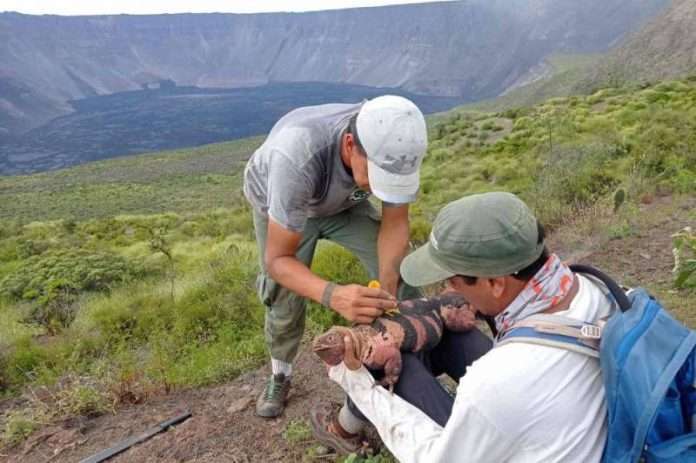Scientists have discovered colonies of young pink iguanas on the Galapagos Islands, an endangered reptile native to just one island in the Ecuadorian archipelago, for the first time since the species was discovered a few decades ago.
According to estimates, the “pink iguana”, which is native to the slopes of Wolfe Volcano on Isabella Island in the Galapagos, is endangered and there are only a few hundred left, reports a local Arabic daily quoting Reuters.
“This discovery represents an important step forward, allowing us to define a plan to save the pink iguana,” said Galapagos National Park Director Danny Rueda.
Rangers in the Galapagos National Park discovered the “pink iguana”, which can stretch its body up to 45 centimeters, for the first time in 1988.
However, it took decades for scientists to recognize the “pink iguana” as a separate species from other subspecies on the island.
The national park said the “pink iguana” was threatened by exotic species on the island, especially rodents.
“Knowing all the factors that threaten their survival will allow us to act in a timely manner, especially against invasive strains, and thus avoid disrupting the natural cycles of their weakened ecosystem,” Rueda said.

















